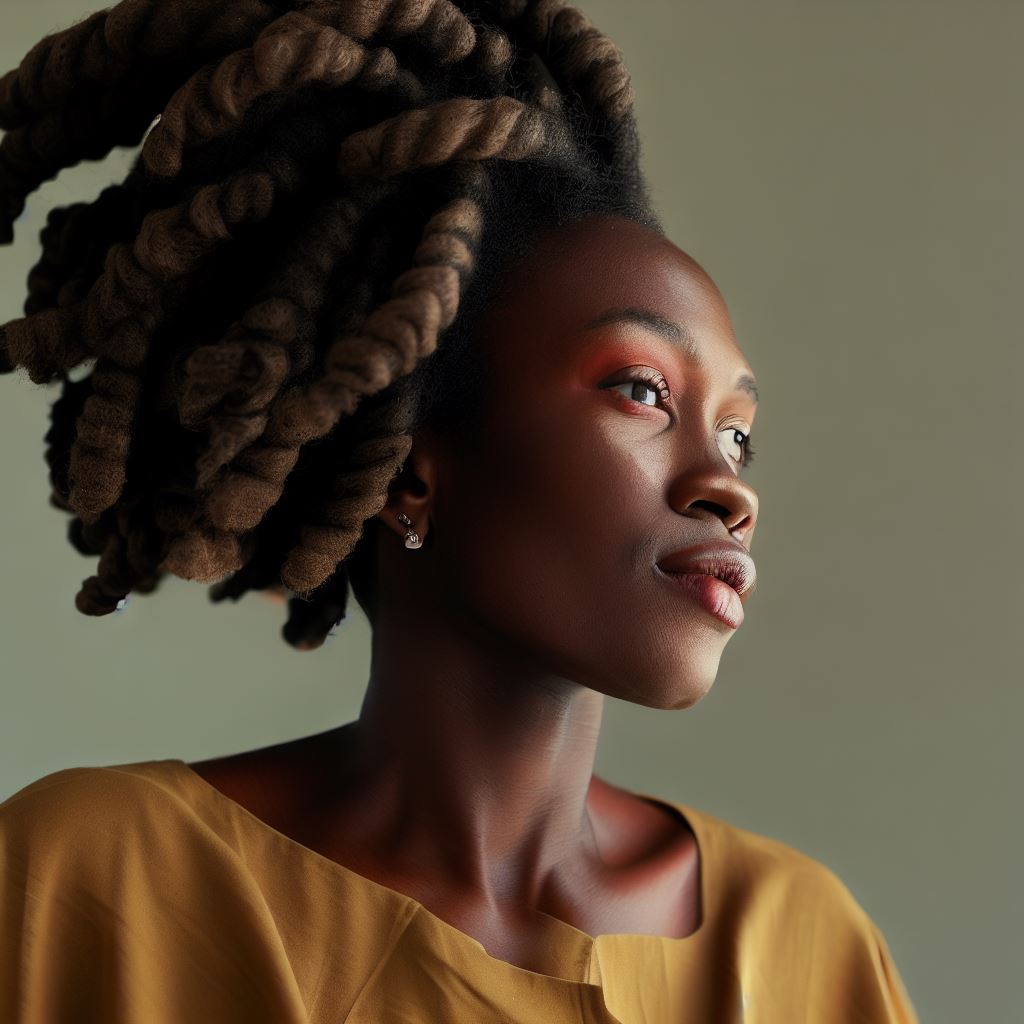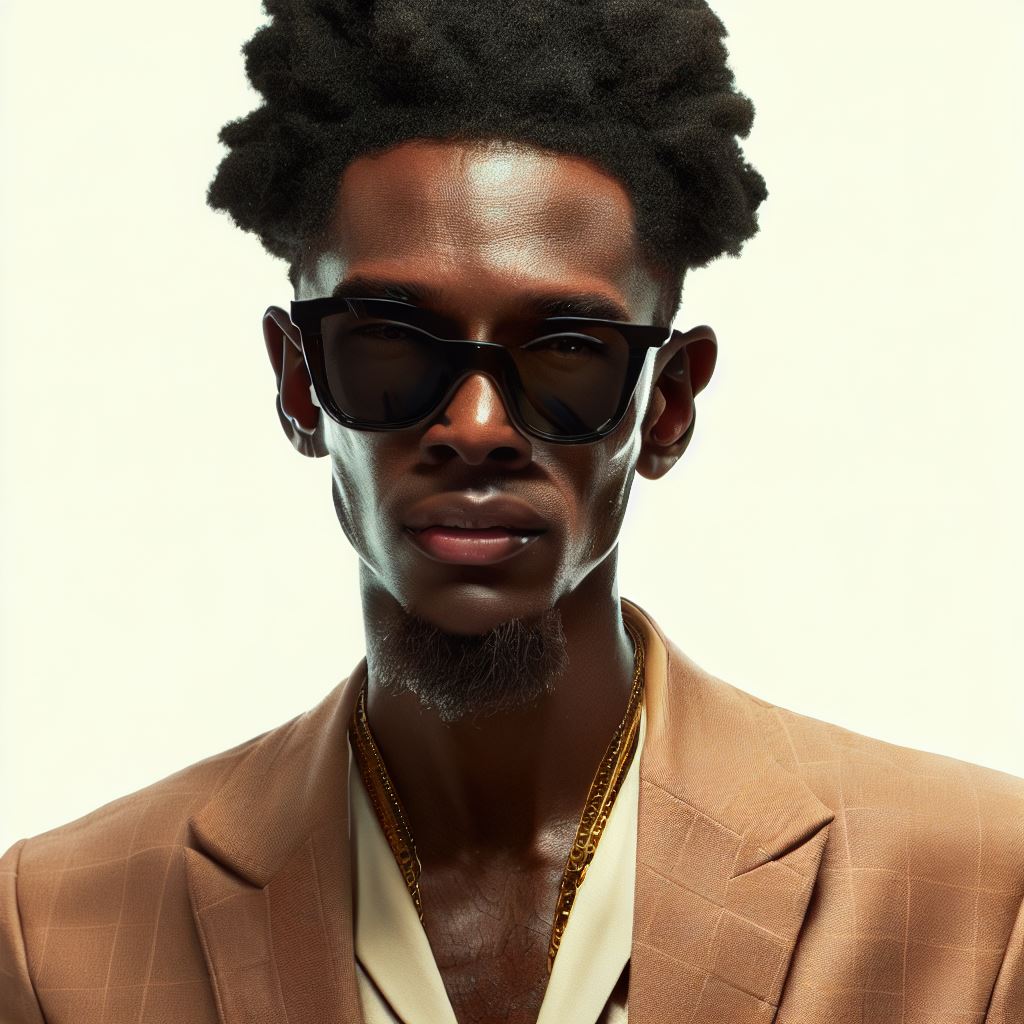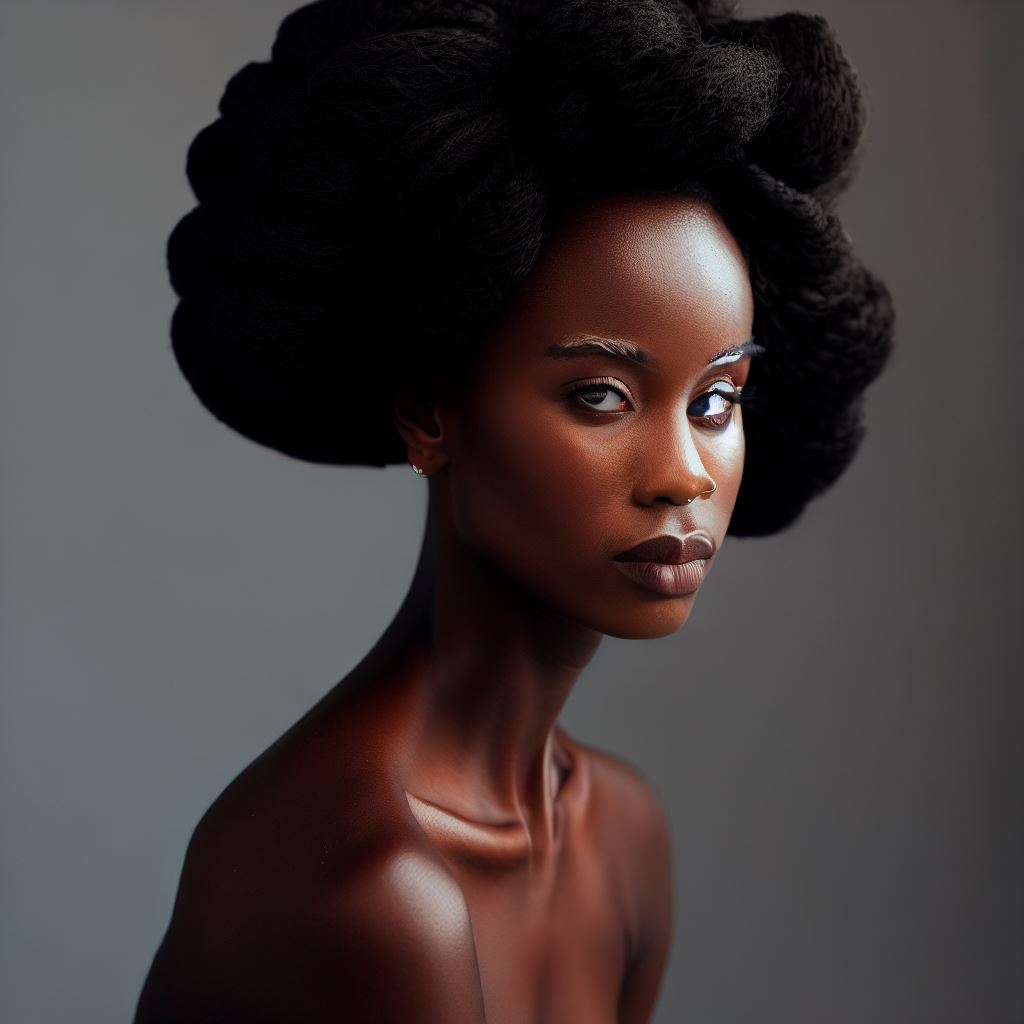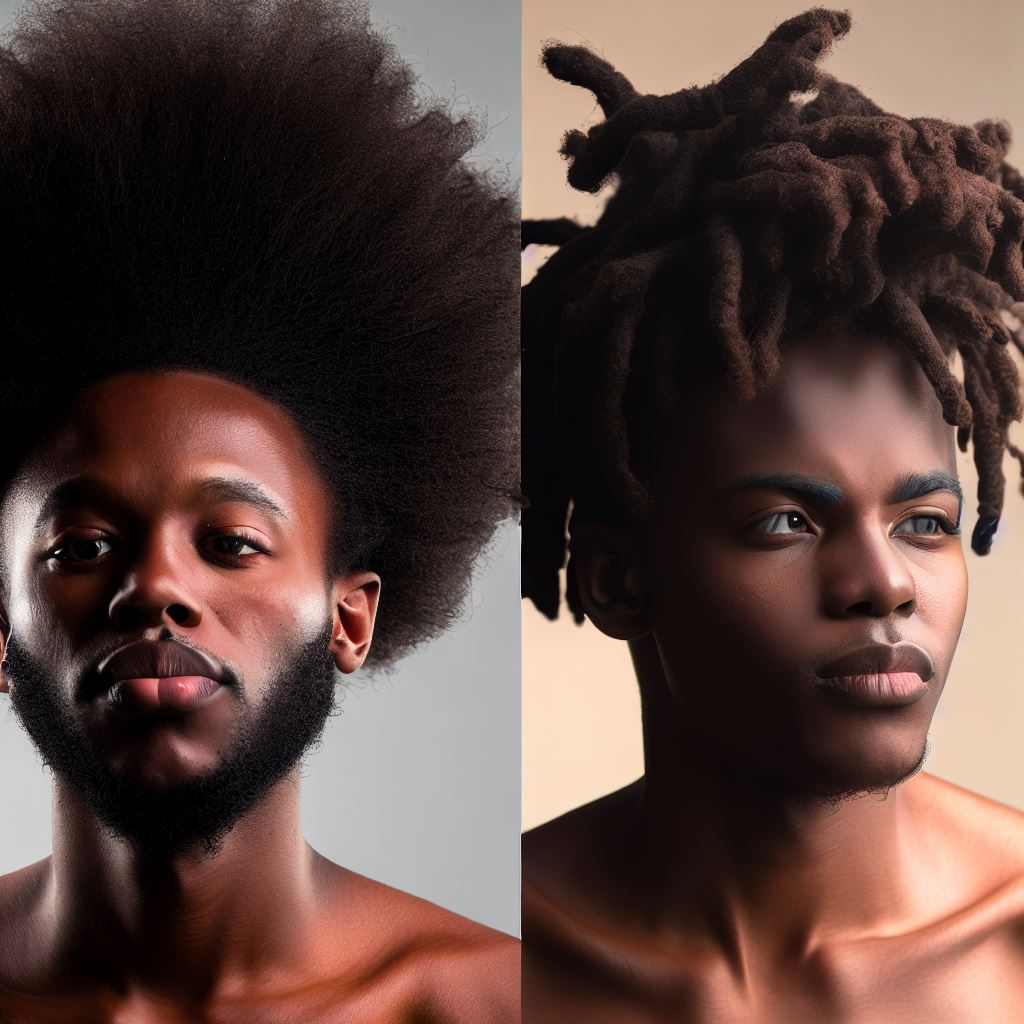Introduction
Let’s explore understanding the business of film hair styling in Nigeria.
Film hair styling in Nigeria plays a crucial role in the country’s booming film industry. With the growing popularity of Nollywood, the demand for skilled hair stylists has increased significantly.
Hair styling not only enhances the aesthetics of the characters but also helps in portraying their personalities, social status, and historical context.
It adds an extra layer of authenticity and realism to the storytelling, making it an essential element of filmmaking.
Nigerian films often showcase diverse hairstyles that reflect the local culture, traditions, and fashion trends.
From traditional braids and intricate headpieces to modern trendy hairstyles, the art of hair styling brings characters to life on the big screen.
Moreover, hair styling in films also creates employment opportunities for local hair stylists, contributing to the growth of the beauty and fashion industries.
The expertise and creativity of these professionals contribute to the overall visual appeal and success of the film.
Therefore, understanding the business of film hair styling is crucial for both aspiring hairstylists and filmmakers in Nigeria.
In this blog section, we will explore the world of film hair styling in Nigeria, including its importance, challenges, and opportunities in the ever-evolving film industry.
The Evolution of Film Hair Styling in Nigeria
Film production in Nigeria, popularly known as Nollywood, started off with humble beginnings and lacked emphasis on hair styling.
However, over the years, the industry has progressed and recognized the significance of proper hairstyling in enhancing the overall look and feel of films.
The Early Days of Nigerian Film and the Lack of Emphasis on Hair Styling
- Limited resources: In the early days, Nigerian film production faced challenges of limited resources, including budget constraints, which affected the attention given to hair styling.
- Focus on storytelling: The emphasis was primarily on storytelling, and hair styling was often overlooked as filmmakers mainly focused on delivering the narrative.
- Untrained stylists: In addition, the lack of availability of trained hairstylists further contributed to the negligence of hair styling in Nigerian films.
These factors combined led to films with subpar hair styling, which affected the overall visual appeal of the characters and settings.
The Progress and Recognition of Hair Styling in Recent Years
In recent years, the Nigerian film industry has come a long way in recognizing the significance of hair styling.
The industry now understands the impact that well-styled hair can have on enhancing the authenticity and visual appeal of characters and the overall production.
- Rising production standards: The industry’s improved production standards have allowed for greater attention to detail, including hair styling, resulting in more realistic and visually appealing films.
- Increased demand for professionalism: As Nollywood gained international recognition, the demand for professionalism in all aspects of filmmaking, including hair styling, grew significantly.
- Incorporating cultural elements: Many Nigerian films embrace cultural elements, showcasing traditional hairstyles and requiring specialized knowledge and skills in hair styling.
This recognition has led to the emergence of influential hairstylists who have made a significant impact on the industry.
Influential Stylists Making an Impact on the Industry
- Ugo Igbokwe: Ugo Igbokwe is a highly respected hairstylist in Nigeria who has worked on several high-profile films. His expertise in creating authentic and culturally significant hairstyles has set new standards in the industry.
- Naomi Nwonu: Naomi Nwonu is another influential hairstylist who has made a mark in the Nigerian film industry. Her ability to transform actors by creating stunning and unique hairstyles has earned her accolades and recognition.
- Stanley Amaechi: Stanley Amaechi’s creativity and attention to detail in hair styling have garnered him a prominent position in Nollywood. His work reflects his deep understanding of character development and enhances the storytelling process.
These influential stylists, along with many others, have contributed to the evolution of film hair styling in Nigeria. Their dedication and expertise have elevated the industry’s standards and given hair styling the recognition it deserves.
In short, the Nigerian film industry has come a long way in recognizing and valuing the importance of hair styling.
From the early days of neglect to the present emphasis on professionalism and authenticity, the evolution of film hair styling in Nigeria has been remarkable.
With the contributions of influential stylists, the industry continues to enhance its visual appeal and storytelling ability through the art of hair styling.
Read: Training Programs for Aspiring Film Hair Stylists in Nigeria
The Business Side of Film Hair Styling in Nigeria
In Nigeria, film hair styling operates as a thriving business in the entertainment industry.
Role of stylists as freelancers or members of production teams
Stylists in this field can choose to work as freelancers or become members of production teams.
As freelancers, film hair stylists have the flexibility to work on different projects and with various clients.
They can negotiate their rates, set their terms and conditions, and have the freedom to choose their projects.
Joining a production team offers stability and the opportunity to work on a long-term basis.
The financial aspects, including rates, contracts, and negotiation
Stylists who are members of production teams often sign contracts that outline their roles and responsibilities.
These contracts also specify the duration of the project and the payment terms agreed upon.
Understanding the financial aspects is crucial for film hair stylists in Nigeria.
Setting the right rates can ensure that stylists are compensated fairly for their skills and services.
It is common for stylists to charge a daily or weekly rate, depending on the project’s length.
The rates may vary depending on the stylist’s experience, reputation, and the production’s budget.
Negotiation skills are essential for film hair stylists to secure favorable contracts and rates.
They must be able to advocate for themselves and effectively communicate their value to clients and production teams.
Contracts are essential in outlining the terms and conditions agreed upon by both parties.
They should cover aspects such as the scope of work, payment terms, and any additional expenses.
Contracts protect both the stylist and the client by ensuring clarity and preventing misunderstandings.
Word-of-mouth referrals also play a significant role in securing new projects and clients.
Continual learning and staying up to date with industry trends are essential in this competitive field.
In fact, the business of film hair styling in Nigeria is a dynamic and multifaceted industry.
Whether as freelancers or members of production teams, stylists play a crucial role in bringing characters to life.
Understanding the financial aspects, negotiation skills, and building professional networks are vital for success in this field.
With the right combination of talent, dedication, and business knowledge, film hair stylists can thrive in Nigeria’s vibrant film industry.
Read: Influence of Culture on Film Hair Styling in Nigeria
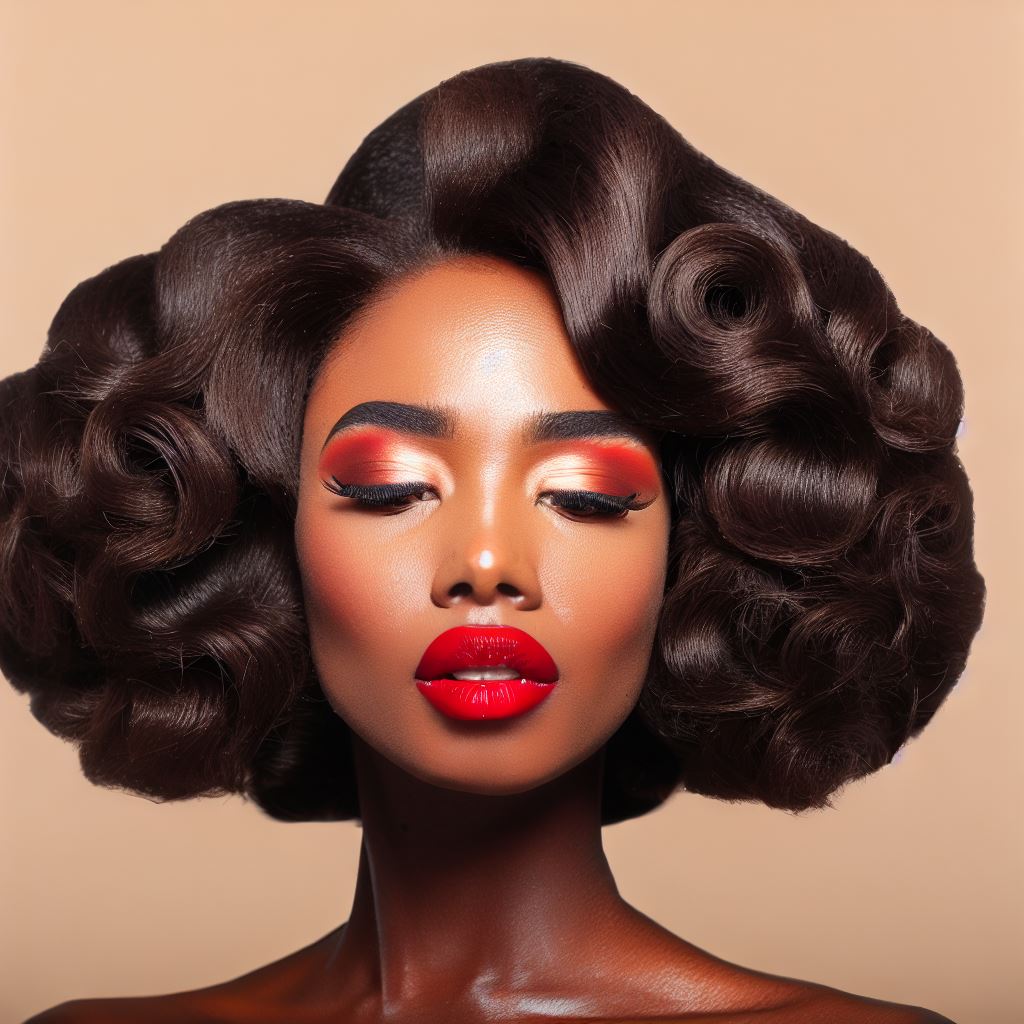
Challenges and Opportunities in Film Hair Styling
Identifying the Challenges Faced by Hair Stylists in Nigeria’s Film Industry
- Constantly evolving industry trends make it challenging for hair stylists to keep up.
- Limited access to advanced training and educational opportunities hinders professional growth.
- Working conditions are often unpredictable, with long hours and tight deadlines.
- Limited budgets make it difficult to source high-quality hair products and materials.
- Lack of recognition and appreciation for the importance of hair styling in films by stakeholders.
- Inaccurate portrayals of cultural hairstyles and limited representation of natural hair in movies.
- Competition among stylists for limited opportunities and projects in the film industry.
- Perceived lower status of hair stylists compared to other members of the production team.
- Difficulties in effectively communicating and understanding the vision of directors and producers.
- Working with actors who have specific hair-related preferences or limitations.
Exploring the Limited Resources, Budgets, and Time Constraints Hair Stylists Often Encounter
- Inadequate financial resources for purchasing high-quality hair products and equipment.
- Working with limited budgets often means compromising on the desired look or using subpar materials.
- Time constraints require hair stylists to quickly create intricate looks while maintaining quality.
- Long working hours and physically demanding tasks can lead to exhaustion and burnout.
- Juggling multiple projects simultaneously due to the short production timelines in the film industry.
- Limited access to specialized styling tools and equipment, restricting creativity and versatility.
- Intense pressure to deliver exceptional results despite resource constraints and time limitations.
- Difficulties in finding suitable hair models or actors with the desired hair type or characteristics.
- Limited storage space and transportation challenges for carrying hair products and tools on set.
- Risk of damaging actors’ hair due to frequent styling changes and use of heat or chemicals.
Discussing the Opportunities Available for Stylists to Showcase Their Skills and Build a Successful Career in the Industry
- Collaborating with talented directors, producers, and actors to create memorable on-screen looks.
- Gaining exposure and recognition through film festivals, award shows, and industry events.
- Networking and building relationships with industry professionals to secure future projects.
- Creating a portfolio of diverse and impressive hairstyles to attract potential clients.
- Opportunities to work on both local and international film productions, expanding professional horizons.
- Building a strong reputation for delivering exceptional results, leading to more opportunities.
- Becoming a sought-after stylist by developing a niche expertise in specific styles or eras.
- Collaborating with other creative professionals in the industry to further enhance skills and knowledge.
- Participating in training programs and workshops to continuously improve styling techniques.
- Embracing digital platforms and social media to showcase work and attract new clients.
In essence, the business of film hair styling in Nigeria poses various challenges for hair stylists, including limited resources, tight budgets, and time constraints.
However, there are numerous opportunities for stylists to showcase their skills, build a successful career, and contribute to the development of the industry.
Read: Notable Nigerian Film Hair Stylists and their Impact
Learn More: Innovative Hair Techniques in Nigeria’s Film Industry
Trends and Innovations in Film Hair Styling in Nigeria
Film hair styling in Nigeria has evolved over the years, reflecting the dynamic nature of the industry.
Current trends and popular styles in Nigerian film
Stylists constantly adapt to current trends, incorporating innovative techniques and products to create unique and groundbreaking looks.
Here are some of the current trends and popular styles in Nigerian film hair styling:
- Natural Hair Movement: In recent years, there has been a surge in embracing natural hair textures in Nigerian films. Many stylists are celebrating the beauty of afros, braids, and other natural hairstyles, highlighting the authenticity and cultural richness they bring to the characters.
- Intricate Braids and Weaves: Elaborate braided hairstyles and intricate weaves have become increasingly popular in Nigerian films. Stylists skillfully create stunning patterns and designs, adding depth and character to the on-screen personas.
- Traditional Hairstyles: Nigerian films often explore cultural stories and traditions, and hair styling plays a vital role in depicting these aspects. Stylists recreate traditional hairstyles, such as the iconic Gele headwrap or the Fulani braids, authentically capturing the essence of the characters’ heritage.
- Bold Colors and Accessories: Vibrant hair colors, such as blues, purples, and pinks, are gaining traction in Nigerian film hair styling. Stylists experiment with colorful extensions and creative accessories to enhance the characters’ personalities and make them visually striking.
Innovative techniques or products being used by stylists
In addition to these trends, stylists in Nigeria are embracing innovative techniques and products to stay at the forefront of the industry. Some notable innovations include:
- Synthetic Hair Technology: Stylists now have access to a wide range of synthetic hair options, which mimic the appearance and texture of natural hair. These advanced products allow them to achieve desired looks more efficiently and maintain the hairstyles throughout shooting schedules.
- Wig Making and Customization: With advancements in wig making technology, Nigerian stylists can create custom-made wigs for specific characters. This technique not only saves time but also ensures consistency in styling, especially for long-term projects.
- Scalp and Hair Treatments: To maintain the health of actors’ hair amidst frequent styling, stylists have started incorporating nourishing scalp and hair treatments. Hydrating masks, moisturizing oils, and protective sprays help prevent damage and keep the hair in optimal condition.
Notable films that have incorporated unique or groundbreaking hair styling
Several Nigerian films stand out for their unique or groundbreaking hair styling, further pushing the boundaries of creativity in the industry. Some notable examples include:
- “Lionheart“: This Nigerian film, directed by Genevieve Nnaji, showcases the importance of cultural heritage. The hair styling in the film authentically portrays Nigerian traditions and pays homage to the country’s diverse ethnicities.
- “Okafor’s Law“: This romantic comedy film, directed by Omoni Oboli, features stylish and modern hairdos that reflect the characters’ vibrant personalities. The film’s hair styling adds an extra layer of visual appeal to the storyline.
- “The Figurine“: Directed by Kunle Afolayan, this supernatural thriller showcases unique and mystical hairstyles that perfectly complement the film’s theme and aura. The hair styling in “The Figurine” creates an otherworldly atmosphere for the viewers.
In general, film hair styling in Nigeria has witnessed remarkable trends and innovations in recent years.
From embracing natural hair to incorporating traditional hairstyles and experimenting with bold colors, Nigerian stylists continue to push creative boundaries.
With the aid of advanced techniques and products, they enhance the visual appeal of characters, contributing to the overall cinematic experience.
Notable films like “Lionheart,” “Okafor’s Law,” and “The Figurine” demonstrate the impact of unique and groundbreaking hair styling in Nigerian cinema.
Read: Importance of Hair Stylists in Nigerian Film Production
Conclusion
Understanding the business of film hair styling in Nigeria is crucial. By grasping the intricacies of this field, stylists can tap into its immense growth and potential.
Understanding the business of film hair styling in Nigeria is essential for success in the industry.
Nigeria’s film industry is growing rapidly, and there is a high demand for skilled film hair stylists.
Film hair stylists play a vital role in bringing films to life. They work closely with directors, actors, and other crew members to create hairstyles that reflect the characters and the story.
Here are some tips for success in the film hair styling industry in Nigeria:
- Develop your skills and knowledge. There are a number of training programs and workshops available for aspiring film hair stylists.
- Build a strong portfolio. Showcase your best work in your portfolio, and make sure to keep it updated with new projects.
- Network with other professionals. Attend industry events and connect with other film hair stylists, directors, and producers.
- Be professional and reliable. Show up on time to shoots, be prepared to work hard, and be able to meet deadlines.
I encourage all readers to appreciate the role of film hair stylists and support their work. Film hair stylists are essential to the success of the Nigerian film industry.
They bring films to life with their creativity, skill, and dedication.
We should all appreciate the vital role that hair stylists play in the film industry.
Supporting their work not only enables them to thrive but also helps elevate the quality of Nigerian films.

